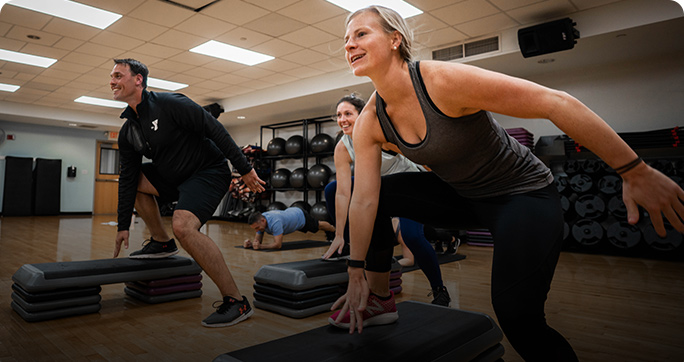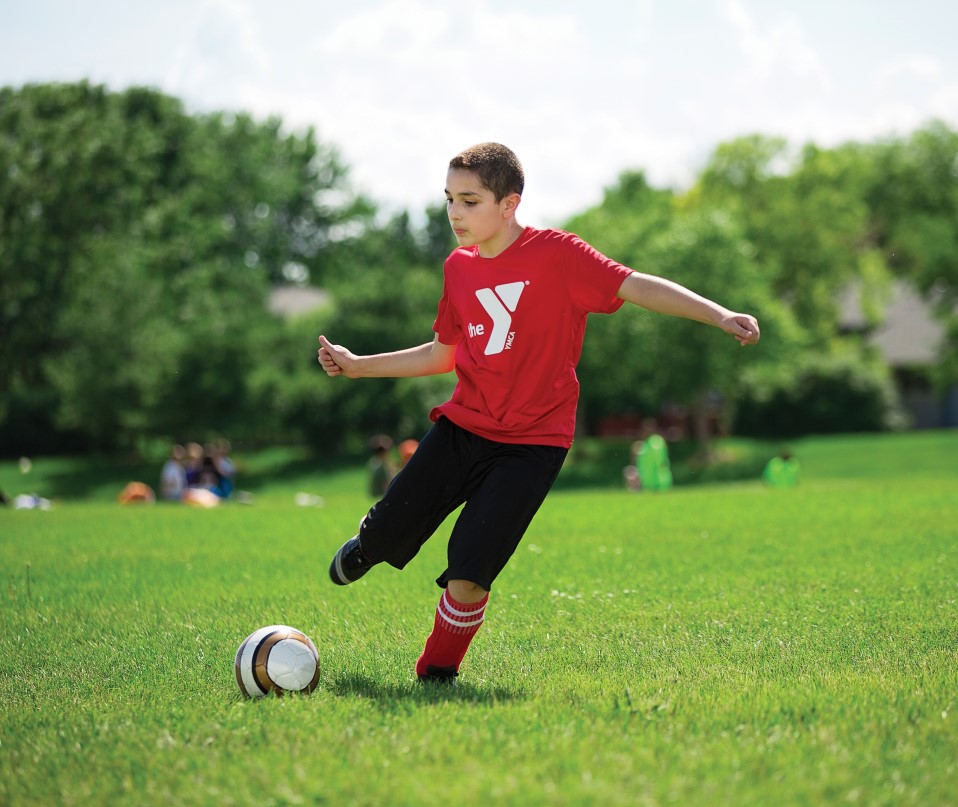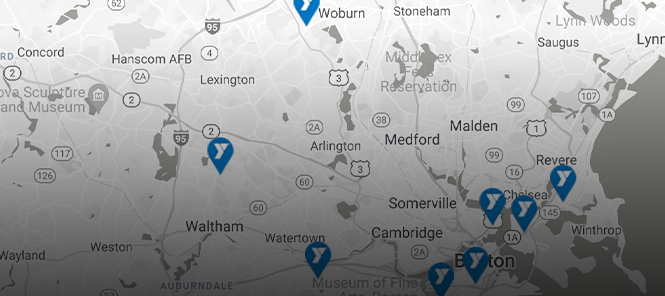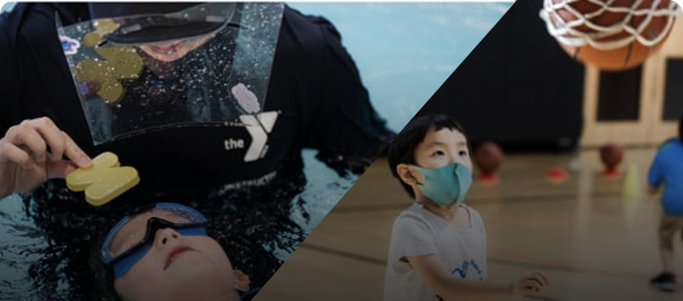
Week 7
Understanding the Habit Loop
What is a habit?
Simply put, a habit is a behavior that is repeated regularly. James Clear (Atomic Habits)1 says that habits are the small decisions you make and the actions you perform every day. Habit formation is thought to be the process by which behaviors become automatic. Charles Duhigg (The Power of Habit)2 defines habits as behaviors that start as a choice, and then become a nearly unconscious pattern. Perhaps Merriam-Websters definition is the most relatable; a habit is a usual way of behaving or a tendency that someone has settled into.
1 Clear, James. Summary & analysis of Atomic habits : an easy & proven way to build good habits & break bad ones. New York: Penguin Random House LLC, 2018. 2 Duhigg, Charles, and Mike Chamberlain. The power of habit. New York, N.Y.: Random House, 2012.
Week 7
Understanding the Habit Loop
What is a habit?
Simply put, a habit is a behavior that is repeated regularly. James Clear (Atomic Habits)1 says that habits are the small decisions you make and the actions you perform every day. Habit formation is thought to be the process by which behaviors become automatic. Charles Duhigg (The Power of Habit)2 defines habits as behaviors that start as a choice, and then become a nearly unconscious pattern. Perhaps Merriam-Websters definition is the most relatable; a habit is a usual way of behaving or a tendency that someone has settled into.
1 Clear, James. Summary & analysis of Atomic habits : an easy & proven way to build good habits & break bad ones. New York: Penguin Random House LLC, 2018. 2 Duhigg, Charles, and Mike Chamberlain. The power of habit. New York, N.Y.: Random House, 2012.
With regard to health, we can have habits that are either positive or negative behavior patterns (a.k.a. good or bad habits)
Example of “good” health habit:
Every week day, I drop the kids at school and go right to the gym for the 8:30 class.
Example of “bad” health habit:
Every night, a couple hours after dinner, I end up raiding the snack cabinet.
HOW LONG DOES IT TAKE FOR A BEHAVIOR TO BECOME A HABIT?
• 21 days is a myth spread after a 1960 book called Psycho-Cybernetics became widely popular. (It was written by a plastic surgeon who noticed his patients seemed to take about 21 days to get used to their new faces.)
• Researchers from University College London showed a huge variation in the time it took individuals to make a behavior a habit – anywhere from 18 to 254 days.
• Some people are more challenged to form habits than others.
• Some habits are more difficult to pick up than others.
• The researchers from the University College London found that it takes at least 66 days for “automaticity” to kick in.

Steps to deconstructing a negative health behavior, or unhealthy habit
1. Start by raising your awareness. Take some time to reflect on your day, and overall lifestyle. Identify specific negative/unhealthy behavior patterns.
2. Aim to interrupt a problematic behavior patterns that may have become unconscious, or automated.
3. Starting with the behavior (the “routine” in the above cycle) that you have identified, think forward in the cycle to identify the “reward”. What is the payoff you are getting from this behavior?
4. Now think backwards in the cycle to identify the “cue” – or the trigger that leads you to seek the reward by initiating the routine.

How have you overcome mindless eating in the past and/or how could you improve on this going forward?
Steps to building a new positive behavior, or healthy habit
1. Start with something small, and keep it as simple as possible.
2. Set yourself up for success by making the execution of the habit as easy for yourself as possible (put your workout clothes out the night before, meal prep, make you lunch ahead of time, etc.).
3. Be consistent. Aim for automaticity. Recent research shows that repetition is the key to converting a new behavior into a habit – perhaps even more so than the reward. Aim for automaticity.
4. This applies to both positive and negative health behaviors, so be careful not to let poor health choices (such as stopping for a donut everyday on your way to work, or spending hours on the couch every night after dinner) become habit.
5. Actively identify, and work through barriers and challenges that seem to get in your way.
6. Stick with it! People often give up too early when they don’t see the result or the reward they are looking for right away.
7. If you slip, get back on track right away.
How do I usually respond to these cues?
What are some healthy rewards I can brainstorm for myself?
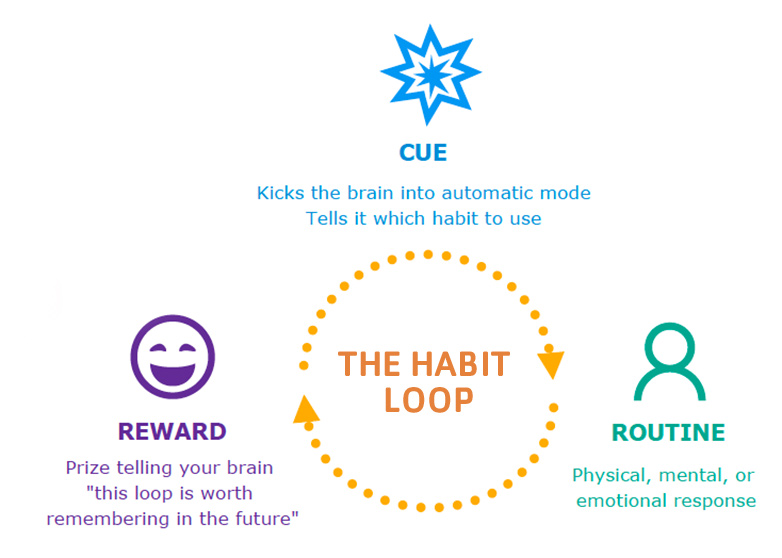
CUE
Triggers your brain to initiative a behavior. It is a bit of information that predicts a reward.
RESPONSE
The actual behavior (habit) you perform. Whether it occurs depends on how motivated you are, as well as your assessment of the amount of effort and ability required.
REWARD
The end goal of every craving. Delivers contentment and relief from craving (albeit, temporarily). Importantly, rewards teach us what behaviors we should remember in the future.

Coming Up WEEK 8 – Mindful Eating
GROUP FITNESS CLASSES
Group Exercise
Explore all the fitness classes and reserve a space by logging into Motionvibe. Get your blood pumping with classes like HIIT and Zumba or tap into your mindfulness with yoga, Barre or Pilates.
WATER FITNESS
Water Fitness classes are an excellent choice to give your heart and muscles a great workout. The Y offers a range of Water Fitness classes, find the perfect one for you by logging into Motionvibe!
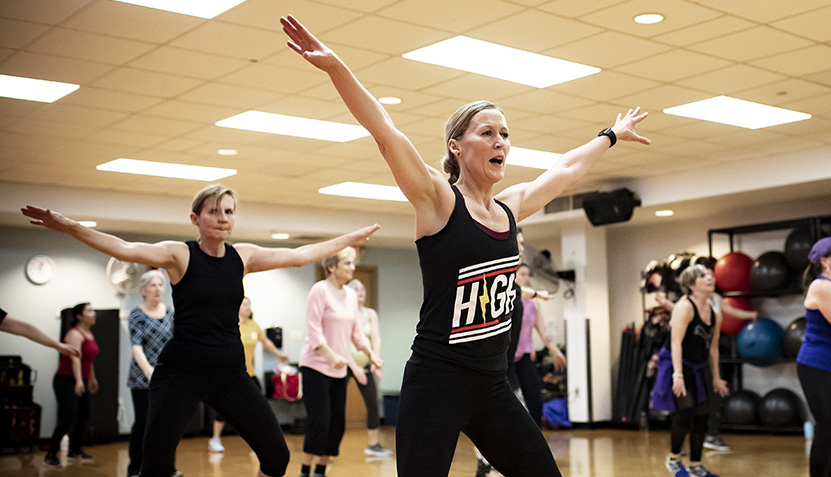

Locations
Adult Pickleball
Pickleball is a paddle sport that combines many elements of tennis, badminton and ping-pong and is also fun, social, and friendly.
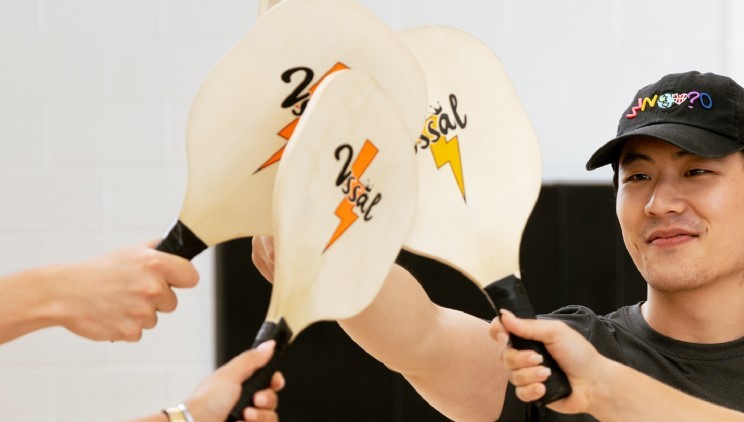
Youth Sports
5-10 weeks
YMCA youth sports programs give kids the opportunity to learn and grow through a variety of exciting activities, including basketball, soccer, volleyball, and gymnastics. With experienced coaches and a focus on teamwork, sportsmanship, and fun, your child will develop athletic skills and confidence in a supportive, inclusive environment. Sign up today and let them thrive through the joy of sports at the Y!
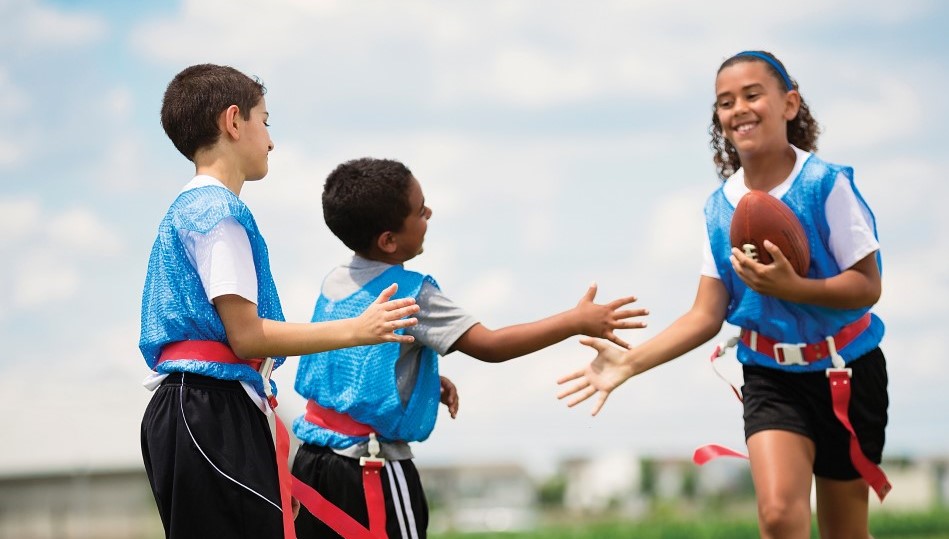
Youth Swim Lessons
5-10 weeks
YMCA swim lessons for youth ages 6-12 provide a safe, fun, and engaging environment where kids build confidence in the water while learning essential swimming and water safety skills. Guided by trained instructors, participants progress through six swimming stages, focusing on techniques such as floating, stroke development, and endurance, all while fostering a love for swimming and lifelong water safety awareness.
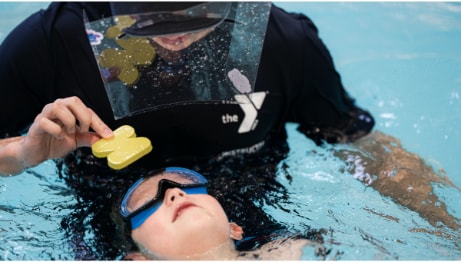
GROUP FITNESS CLASSES
Group Exercise
Explore all the fitness classes and reserve a space by logging into Motionvibe. Get your blood pumping with classes like HIIT and Zumba or tap into your mindfulness with yoga, Barre or Pilates.
WATER FITNESS
Water Fitness classes are an excellent choice to give your heart and muscles a great workout. The Y offers a range of Water Fitness classes, find the perfect one for you by logging into Motionvibe!

Adult Pickleball
Pickleball is a paddle sport that combines many elements of tennis, badminton and ping-pong and is also fun, social, and friendly.

Youth Sports
5-10 weeks
YMCA youth sports programs give kids the opportunity to learn and grow through a variety of exciting activities, including basketball, soccer, volleyball, and gymnastics. With experienced coaches and a focus on teamwork, sportsmanship, and fun, your child will develop athletic skills and confidence in a supportive, inclusive environment. Sign up today and let them thrive through the joy of sports at the Y!

Youth Swim Lessons
5-10 weeks
YMCA swim lessons for youth ages 6-12 provide a safe, fun, and engaging environment where kids build confidence in the water while learning essential swimming and water safety skills. Guided by trained instructors, participants progress through six swimming stages, focusing on techniques such as floating, stroke development, and endurance, all while fostering a love for swimming and lifelong water safety awareness.
